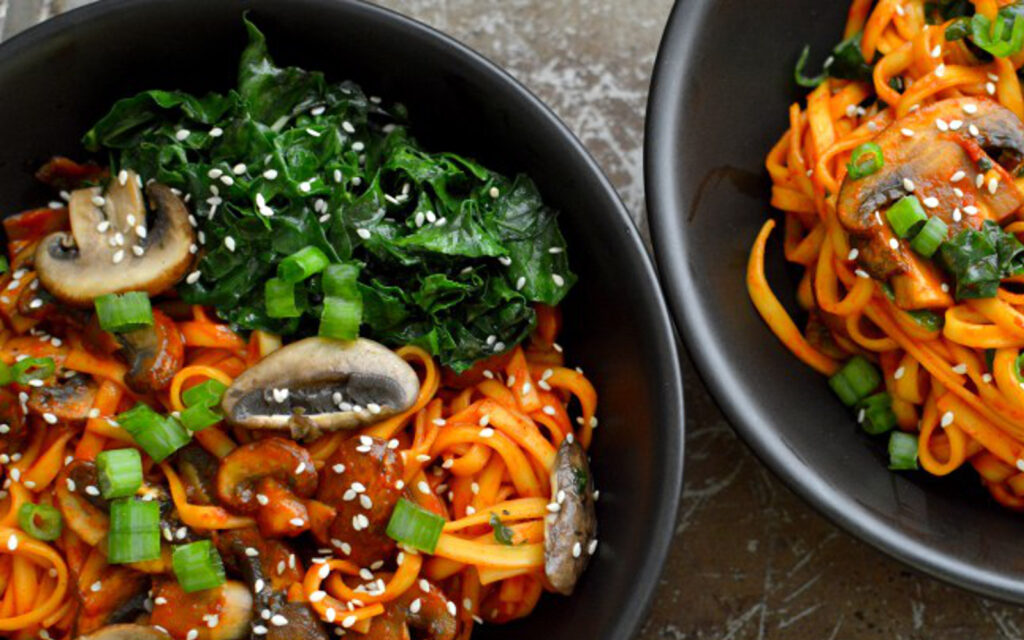Vegan Korean Food: Plant-Based Korean Cuisine

Korean cuisine has been gaining popularity worldwide for its unique and bold flavors, with dishes like bulgogi, bibimbap, and kimchi being widely recognized. However, for those who follow a vegan or plant-based lifestyle, Korean food can be a challenge to navigate, as many traditional dishes contain animal products. But fear not, as there are plenty of delicious vegan options in Korean cuisine!
Traditional Vegan Korean Dishes
- Bibimbap
Bibimbap is a popular Korean dish consisting of rice, vegetables, and a protein, typically beef. However, it can easily be made vegan by replacing the meat with a protein source such as tofu or tempeh. The dish is also usually topped with a raw or fried egg, which can be omitted or replaced with a vegan egg substitute.
- Japchae
Japchae is a sweet potato noodle dish that is commonly served as a side dish or a main dish. The noodles are stir-fried with vegetables such as mushrooms, carrots, and bell peppers, and a protein source such as beef. To make it vegan, simply omit the meat and add more vegetables or a protein source like tofu or tempeh.
- Namul
Namul refers to a variety of Korean dishes made from seasoned vegetables, such as spinach, mung bean sprouts, or fernbrake. These dishes are typically made with sesame oil and soy sauce, making them a flavorful and nutritious addition to any vegan Korean meal.
- Kimchi
Kimchi is a staple of Korean cuisine, made from fermented vegetables such as cabbage, radish, or cucumber. While traditional recipes for kimchi often include seafood, it can easily be made vegan by using a vegan fish sauce substitute or omitting it altogether.
Vegan-Friendly Korean Restaurants
While traditional Korean restaurants may not have many vegan options, there are plenty of Korean restaurants that cater specifically to those following a plant-based lifestyle. Some popular vegan-friendly Korean restaurants include:
- Vegan Bibimbap in Los Angeles, California
- Plum Bistro in Seattle, Washington
- Cho Osam in New York, New York
Making Korean Food at Home
For those who prefer to cook their own food, making vegan Korean dishes at home is a great option. There are many recipes available online, or you can purchase a vegan Korean cookbook for inspiration. Some ingredients that are commonly used in vegan Korean cooking include:
- Gochujang (Korean chili paste)
- Doenjang (Korean soybean paste)
- Sesame oil
- Soy sauce
- Rice vinegar
- Garlic
- Ginger
Conclusion
While traditional Korean cuisine may not be the most plant-based friendly, there are plenty of delicious vegan options to choose from. Whether you’re dining out at a vegan-friendly Korean restaurant or cooking at home, there is something for everyone in Korean cuisine. So, go ahead and enjoy all the bold and flavorful tastes of Korean food, while following your vegan or plant-based lifestyle.








